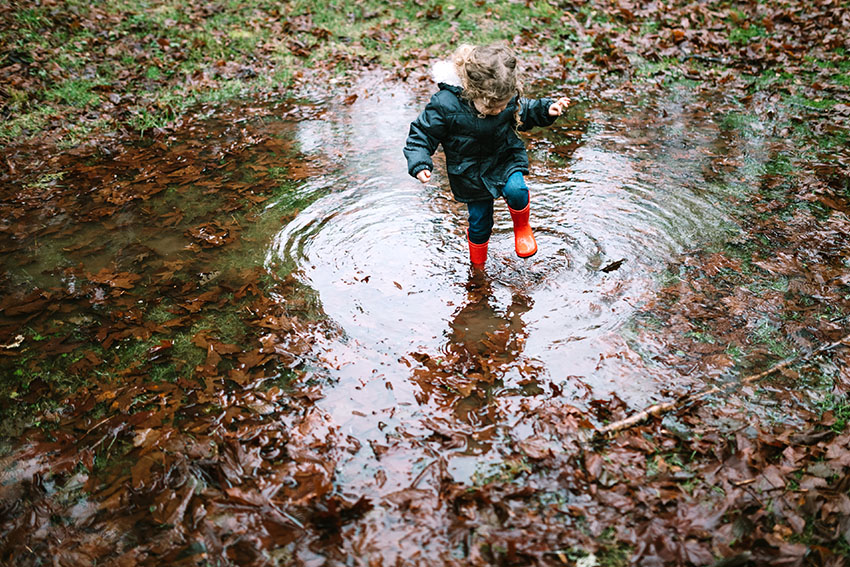Managing Parasite Risks in Rain-Soaked Yards: The Importance of a Pooper Scooper Service in Beaverton, OR

In true pacific NW form, Beaverton Oregon gets (suffers from?) cool, wet winters. As a result, residential yards often become soggy breeding grounds for parasites that can pose significant health risks, especially to children who play outdoors. Understanding these risks and implementing effective management strategies, such as using a pooper scooper service, is crucial for maintaining a safe and healthy environment.
Common Parasites Found in Dog Feces
Hookworms: These parasites thrive in moist, cool soil. Hookworm larvae can infect both dogs and humans by burrowing through the skin or being ingested. They are particularly resilient, surviving in the environment for several weeks, with their numbers peaking in late summer and early fall.
Whipworms: Favoring cool, moist conditions, whipworms find the rainy seasons of spring and fall ideal for proliferation. These parasites can persist in the soil for extended periods, making them a stubborn environmental hazard.
Roundworms: Known for their resilience, roundworms can survive in soil for months to years. Their eggs remain viable in contaminated soil, posing a long-term risk to both pets and humans.
Giardia: This parasite excels in wet environments, often contaminating water sources. Dogs and humans can contract Giardia by ingesting water tainted with infected feces, leading to gastrointestinal issues.
Environmental Conditions in Beaverton
The typical weather conditions in Beaverton, characterized by frequent rain and cool temperatures, create ideal conditions for these parasites:
Moisture Retention: The damp soil in yards allows parasite eggs and larvae to survive longer, increasing the risk of transmission.
Temperature: The cool climate aids in the development and longevity of many parasites.
Seasonal Variations: The rainy seasons enhance the proliferation of these parasites, making certain times of the year particularly risky.
Transmission and Health Risks
Transmission of these parasites can occur in various ways:
- Direct ingestion of contaminated soil or water.
- Skin contact with infected soil, a common route for hookworms.
- Grooming behaviors in pets, such as licking paws that have been in contact with contaminated ground.
These parasites are not only a danger to pets but also to humans, particularly children who play in yards where dogs have defecated. The health risks include gastrointestinal illnesses and, in severe cases, more serious conditions such as organ damage or respiratory problems.
Prevention and Management
To mitigate the risks associated with parasites in dog feces, especially in a wet, cool climate like Beaverton’s, several strategies can be implemented:
Regular Cleanup: Utilizing a local pooper scooper service ensures that dog feces are promptly removed from yards, reducing environmental contamination. Services like these are crucial in areas with high rainfall, as they help minimize the survival and proliferation of parasites.
Soil Treatment: Applying food-grade diatomaceous earth can help dry out affected areas and kill parasites. This natural treatment is safe for both pets and children.
Yard Recovery: Restricting pet access to treated areas until the soil has dried out can prevent recontamination.
Water Management: Improving yard drainage can significantly reduce moisture retention, lessening the habitat suitability for parasites.
By integrating these practices, residents of Beaverton can significantly decrease the risk of parasite infestations. Moreover, investing in a professional pooper scooper service not only maintains the aesthetic appeal of your yard but also plays a critical role in safeguarding your family’s and pets’ health. Checking pooper scooper service prices and understanding the scope of their services can help you choose the right provider to suit your needs.
In conclusion, managing parasite risks in Beaverton requires a proactive approach, especially during the wetter months. Services that specialize in pet waste removal offer more than convenience; they provide a critical health service that keeps your outdoor spaces safe for everyone, especially the most vulnerable—our children.
https://lawnlove.com/blog/is-dog-poop-bad-for-grass/
https://cleancuts.net/lawn-service/dirty-secrets-pet-waste/
https://tamedogtraining.com/parasite-protocol/
http://comforthomepetservices.precisepetcare.com/blog/468/intestinal-parasites-overview
https://lawn-expert.com/the-silent-menace-unveiling-the-dangers-of-dog-poop-in-your-lawn/

